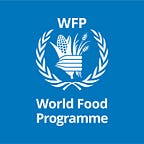International Women’s Day: Data and Determination for Food Security in the Pacific
Elenoa’s journey with the World Food Programme (WFP) is one that is rooted in a deep commitment to adopting data-driven solutions to tackle food security.
It is the end of a long day; Elenoa is at her desk, deeply engrossed in her work. Her eyes are glued to two monitor screens, scanning rows of data that appear to be digits otherwise incomprehensible to the untrained eye.
In the Pacific, a trio of crises are challenging the region; the onslaught of cyclical natural disasters, compounded by the far-reaching impacts of the global food, fuel and energy crisis, all exacerbated by the unrelenting COVID-19 pandemic. To drive evidence-based decision-making for food security, data is key. And Elenoa plays is an integral part of this effort.
For seven years, Elenoa Diani has been a steadfast force at WFP’s Pacific Multi-Country Office. As a Programme Policy Officer in the Research Analysis and Monitoring team, Elenoa helps to conduct remote surveys to monitor food security, nutrition and livelihoods across households in Fiji, Samoa, Kiribati, Tonga and Vanuatu.
“WFP’s remote monitoring technology provides real-time data, disaggregated by gender, disability, and households with older people. With this timely and accurate information, we can create policies that are grounded in evidence and ensure no one is left behind,” said Elenoa.
‘A field dominated by men’
Hailing from the small village of Lomati from the Kadavu province of Fiji, a career in technology was not something that many women from Elenoa’s community considered.
“Where I am from, women don’t think of pursuing careers in technology…It is a field dominated by men. But I was always fascinated by data, especially in relation to food security which is a pressing issue here.
Data tells the story of not only what is wrong, but who is impacted and to what extent. Only with the full picture in place can we develop effective solutions for the problems we want to address.”
Elenoa pursued a Bachelor of Applied Sciences in Environment at Auckland University of Technology and returned to Fiji to work in disaster risk management. It was during this time that she realized the power of technology in addressing humanitarian crises and further attained a Postgraduate certificate in disaster risk management (DRM).
“Over the years, I have seen the percentage of female participants in my workshops go up. Existing disparities may discourage women to consider it as a career option, but today more women are playing critical roles in their government’s efforts to lead the way through data.”
Supporting Pacific governments to strengthen data collection and management
In December 2016, Elenoa was delivering her first simulation training on ‘data for disaster response’ in the Solomon Islands, when things took a dramatic turn. The day she arrived, the country was rocked by a magnitude 7.8 earthquake. The training for staff at Ministry of Agriculture quickly turned into a real-time disaster response activity. Elenoa then supported the Ministry from ground zero to develop a 72-hour assessment capturing the immediate needs and initial response after the earthquake.
Last week, Elenoa returned to Kiribati and trained staff from the Department of Agriculture and Livestock to collect real-time data, helping to assess the drought’s impact on food security. This included setting up remote monitoring for food security, vulnerability, and livelihood in response to the crisis.
In her time with WFP, Elenoa has conducted trainings in the Solomon Islands, Samoa, Vanuatu, Kiribati and Fiji on behalf of the national Ministries of Agriculture, with the aim of strengthening the capacity of Pacific Governments to make informed decisions about their communities’ needs.
“In the humanitarian context, the power of timely information gathering, and sharing is critical. During conflicts and natural disasters, where access is difficult — remote data gathering can fill in the gaps where personnel is missing. I feel really fortunate to bring my passion into work everyday and have an impact.”
